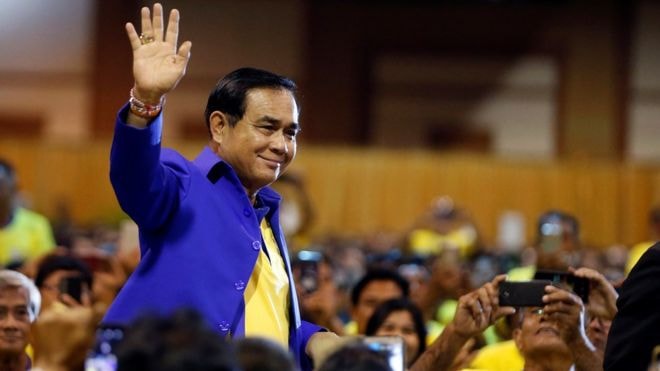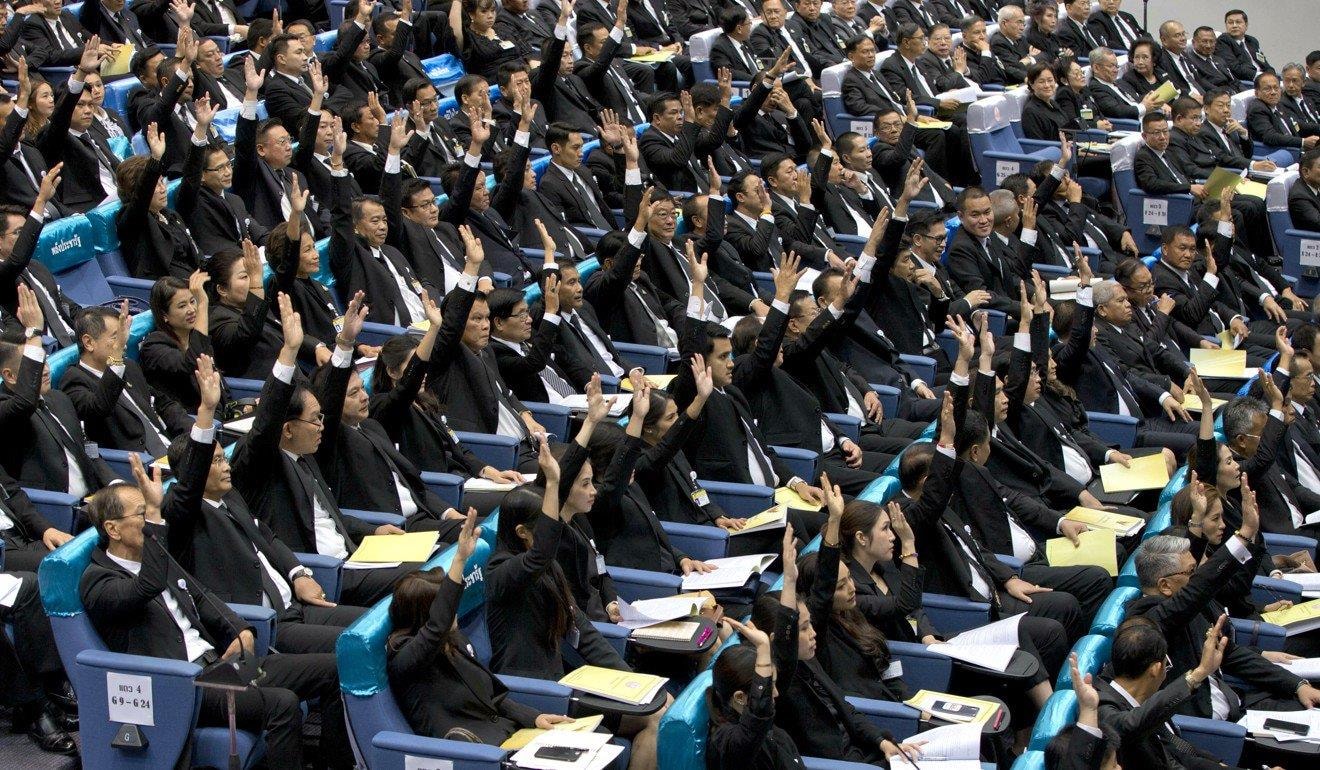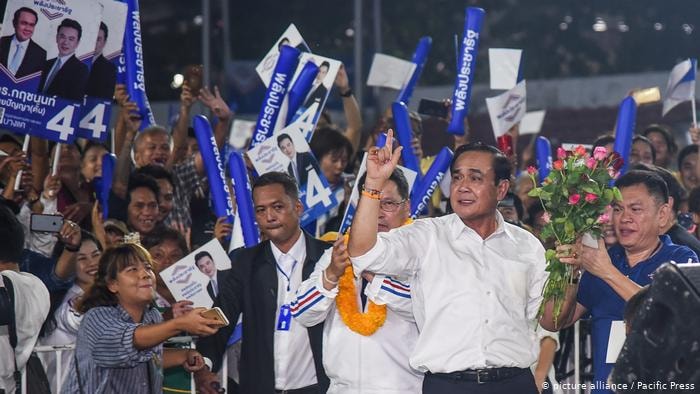Prayuth Chan-ocha - from 'Coup Prime Minister' to 'Democratically Elected Prime Minister'
(Baonghean) - After a tense debate that lasted more than 12 hours among lawmakers, the Thai National Assembly voted to choose a Prime Minister for the new term. With an overwhelming majority of votes compared to his opponent, incumbent Prime Minister Prayuth Chan-ocha became the first democratically elected Prime Minister since the 2014 military coup.
 |
| Prayuth Chan-ocha becomes Thailand's next Prime Minister. Photo: BBC |
The value of stability
The vote on the night of June 5 in the Thai National Assembly was to choose between two candidates: incumbent Prime Minister Prayuth Chan-ocha of the coalition led by the Palang Pracharath Party and Mr. Thanathorn Juangroongruangkit of the coalition led by the Pheu Thai Party.
According to the rules, whoever wins 376 out of 750 votes from both the Senate and the House of Representatives will win. Mr. Prayuth won 500 votes in favor compared to his opponent's 244 votes (3 lawmakers did not vote and 3 abstained), convincingly becoming Thailand's next Prime Minister.
The incumbent Prime Minister’s victory was not too surprising, because of the 750 votes, 250 of the senators were elected by the National Council for Peace and Order - the body chaired by Mr. Prayuth. But according to analysts, this victory also shows a more important factor, which is the trust in a figure capable of bringing stability to Thailand, which has experienced more than a decade of political turmoil and instability.
Not only the MPs participating in the vote, but also the Thai voters gave Mr. Prayuth confidence in what he had shown. According to a survey conducted by the National Institute for Development of Public Administration of Thailand before the election, more than 77% of the survey participants said that Mr. Prayuth worked for the people and the country, 78% said that he had made many important decisions.
Born on March 21, 1954 in Nakhon Ratchasima, northeastern Thailand, Prayuth Chan-ocha is a royal confidant and a powerful figure in Bangkok. Before becoming Prime Minister after the coup that ousted Yingluck Shinawatra in 2014, his life was linked to the military, starting at the Chulachomklao Royal Military Academy.
GDP growth last year reached 4% compared to 0.8% in 2014, exports reached a 7-year high, and tourists to Thailand reached a record of more than 35 million. Infrastructure projects such as the Eastern Economic Corridor with a total investment of 45 billion USD, port projects, railways, factories in the southeast of Bangkok have been implemented to create new momentum for the economy.
When he took power in 2014, he was seen as bringing military qualities to his leadership style. But that was exactly what Thailand needed at that time to restore stability. Looking at the image of Thailand today, we can clearly see the value of the stability that Mr. Prayuth brought.
It can be said that under the leadership of Prime Minister Prayuth Chan-ocha, Thailand has overcome many obstacles to achieve stability in both economy and security, laying the foundation for future development. That is when Mr. Prayuth decided that it was necessary to transition from a military government to a civilian government, and that if he continued to hold the position of Prime Minister of Thailand, he would be a "politician" and not a "soldier".
I am no longer a soldier. I am just a politician who used to be a soldier.
There is no “honeymoon period”
 |
| Thai lawmakers during the voting session on the night of June 5. Photo: AP |
“Ex-military politician” Prayuth Chan-ocha will serve as Thailand’s new prime minister, and the Palang Pracharath Party-led coalition will form a civilian government to replace the military government. Analysts say the new government will not have a “honeymoon period” as it has to deal with the country’s thorny issues in the form of a loose coalition of seven political parties, without an absolute majority in the House of Representatives, so it will not be easy to pass common programs and plans.
His first tough task will be to maintain stability as several opposition parties are ready to challenge the new government. So far, the list of parties in the coalition includes former Prime Minister Thaksin Shinawatra's Pheu Thai, the Future Forward Party, Pheu Chart, Prachachart, Seri Ruam Thai and the Thai People's Power Party.
Many fear that Thailand’s politics will be divided and that a miscalculation could push the country into chaos. That is what King Maha Vajiralongkorn foresaw when he called for national unity after the recent complicated election.
 |
| Prayuth Chan-ocha wants to change from "soldier" to "politician". Photo: DW |
Boosting economic growth will also be a challenge for Prayuth Chan-ocha. Thailand’s National Economic and Social Development Board recently forecast economic growth this year to fall to 3.6% from its previous forecast of 4%, largely due to a slowdown in global growth due to the trade war between the US and China. Meanwhile, Thai exports fell 2.5% in the first months of the year and export growth is forecast to fall from 4.4% to 2.2% this year. Therefore, the new government will have to find ways to revive the economy by stimulating domestic growth when it cannot rely on exports.
Restoring the unstable economy and healing the political divisions within the country are the immediate difficulties for Thai Prime Minister Prayut Chan-ocha, and that will also be the way to affirm his prestige with the Thai people as a "civilian prime minister" instead of a "military prime minister" as he always wanted.

